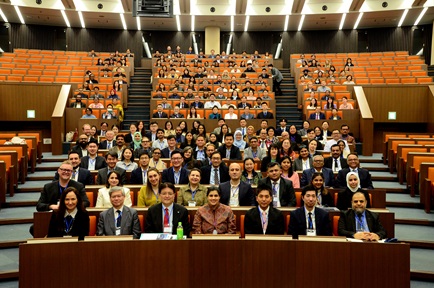Taking a Balanced Perspective on AGO's Findings
Singapore government agencies appear to be taking the rap once again in press reports for the lapses uncovered by the Auditor-General’s Office (AGO) in its selective audit of processes and operations, which checks..
Singapore government agencies appear to be taking the rap once again in press reports for the lapses uncovered by the Auditor-General’s Office (AGO) in its selective audit of processes and operations, which checks for financial irregularity, extravagance or gross inefficiency. Readers may ask exactly how serious were these lapses? Do they tell us whether taxpayers’ money has been well spent? How should we all view these findings?
KPMG and CPA Australia in their 2016 report examined the lapses highlighted by the AGO over a 26-year period from 1990 to 2016 and attributed them to three root causes: lack of monitoring, lack of supervisory oversight, and insufficient robust procedures. The report further clarified that procedures were indeed in place, it is just that they were not executed consistently or aligned to the general standard.
How should we view AGO's findings?
In large operations with layers of controls, mistakes inevitably occur. Any audit that is properly carried out must be expected to uncover some mistakes or lapses. The key question would be whether these lapses are within acceptable thresholds for deviations or errors.
Depending on risk priorities, some controls have lower or higher tolerable deviation thresholds than others. Generally, more costly and resource-intensive systems of controls will be required if the acceptable thresholds for errors are lower. For any organisation, it is then a trade-off between the cost of introducing such measures against the benefit they can bring. If taken too far in our quest to achieve zero mistakes or deviations, the organisation could grind to a halt being encumbered with layers of stringent checks and incur significant operating cost. Ultimately, overly onerous checks can get in the way of government agencies providing expedient services to Singaporeans.
Even if the risk tolerance is breached, does it stem from deep-seated culture issues, or worse, fraudulent intent or sabotage? The government has through its actions made clear that there is zero tolerance for fraud and corruption. We have seen past cases where the AGO has highlighted suspicious or potentially fraudulent activities and individuals found guilty have been swiftly taken to task.
The goal of audit is ultimately to improve governance. Any wrongdoing or systemic lapses that could seriously weaken financial governance would have typically been seriously and promptly dealt with. They have also served as important lessons for greater vigilance to all governmental agencies and ministries.
Good outcomes for spending
Rather than just looking at what went wrong, it is also productive to look at what goes well, or what the governmental ministries and agencies have achieved in order to gauge how well they have been managed.
So, what are their performance outcomes? Have their organisational goals been met? How well and at what costs? It is appropriate to ask these questions because scarce resources should be appropriately and efficiently channelled towards achieving governmental ministries’ and agencies’ goals, and not just meeting compliance and control requirements.
The World Economic Forum Global Competitiveness Report has consistently ranked Singapore highly for efficiency of government spending, and for 2017-2018, Singapore was ranked second globally. Finance Minister Heng Swee Keat, in his Budget Round-up speech on 1 March 2018, has shed some light on government spending in three key areas: education, healthcare, and law and order.
To assess how effective our resources have been managed and spent in meeting the education objectives, we refer to a chart below that shows how 15-year-olds from different countries have fared on the PISA test for science in comparison with government spending in education as a percentage of its gross domestic product (GDP) (source: UNESCO Institute for Statistics, OECD).
 Source: Minister for Finance's Budget 2018 Round-Up speech
Source: Minister for Finance's Budget 2018 Round-Up speech
Singapore has spent about 3 per cent of its GDP and achieved close to 560 in PISA science subject score in 2015. In other words, Singapore students have obtained the highest score with the least government spending in education. This is not the only area that Singapore students have fared well, they have achieved as much in other skills such as collaborative problem-solving, initiative-taking and conflict resolution.
The next chart shows the population healthy life expectancy against government and statutory healthcare spending as a percentage of GDP in 2015 (source: WHO, World Bank and MOH). While many countries spend around 6 to 10 per cent of their GDP on healthcare, Singapore spends much less (slightly more than 2 per cent) but yet achieves relatively higher life expectancy.

Source: Minister for Finance's Budget 2018 Round-Up speech
The final chart below shows the 2017 Gallup Law and Order Index of various countries in comparison with their spending on police services as a percentage of GDP in 2015 (source: Gallup, OECD, Australia and Hong Kong Governments). So, how does Singapore fare in terms of good outcomes from its policing spending?

Source: Minister for Finance's Budget 2018 Round-Up speech
Despite spending at the lower end of the scale in relation to other countries, Singapore achieves the highest ranking in the 2017 Gallup Global Law and Order Index, which gauges people’s sense of personal security and their experience with crime and law enforcement in their respective jurisdictions. Singapore is similarly ranked at the top position in the 2015 Public Safety Composite Outcome Metric by McKinsey and yet spending among the lowest per person per year among various countries in the world in 2012 (source: McKinsey Center for Government GPS Analysis). Transparency International has consistently regarded Singapore as among the cleanest countries in the world. Singapore has also been ranked top in the world for the least corruption in economy (source: World Economic Forum’s Global Competitiveness Report 2017-18).
Balancing performance and compliance
While the good outcomes in the broad key areas cannot be achieved without the collective efforts of all, including parents, responsible citizens, close families, and caring and supportive community groups, credits should also go to the government agencies and ministries that have made all these possible. They comprise dedicated teams and staff who have tirelessly worked towards achieving the larger goals for the greater good of our society, often operating under circumstances subjected to many constraints and challenges.
While the annual AGO reports do show lapses that warrant attention and improvement, they should not undo all the good work the ministries and government agencies have delivered in serving the public. Improvements also take time to yield results, and even then, can never result in zero errors. Some understanding and encouragement will help to spur them on in doing more.
About the author
El’fred is an Associate Professor of the Accounting Division at the Nanyang Business School, Nanyang Technological University. He holds a PhD in Accounting and is a Chartered Accountant (Singapore) and Chartered Accountant (Australia and New Zealand). He is also a member of the Singapore Institute of Directors and the American Accounting Association.







